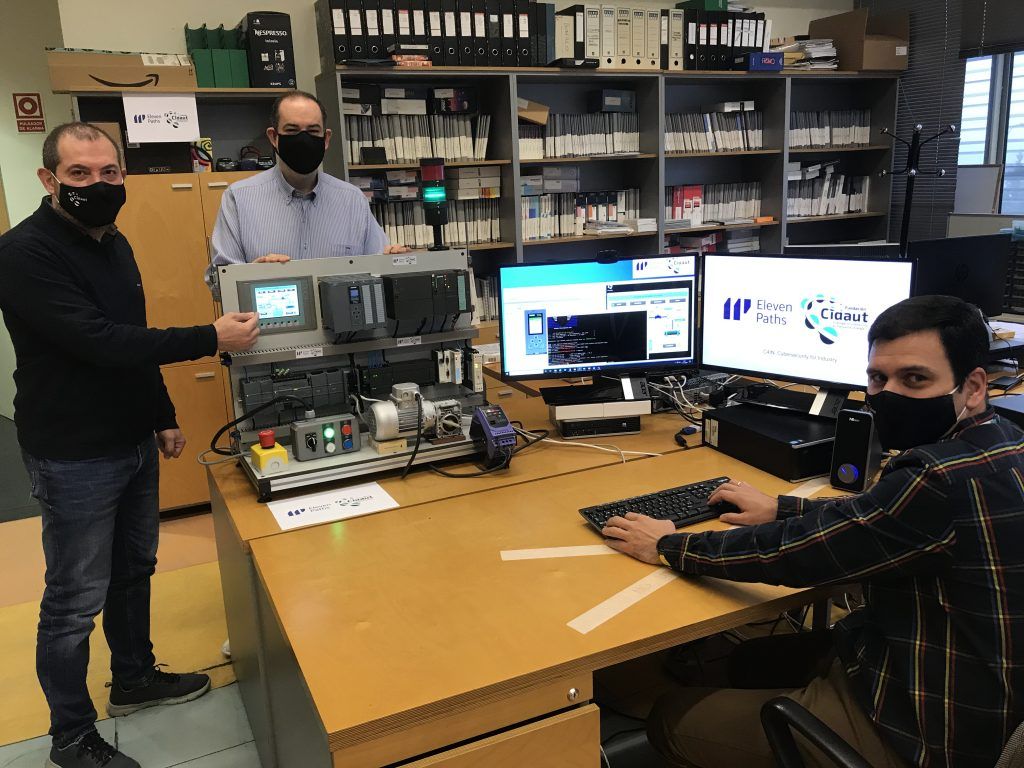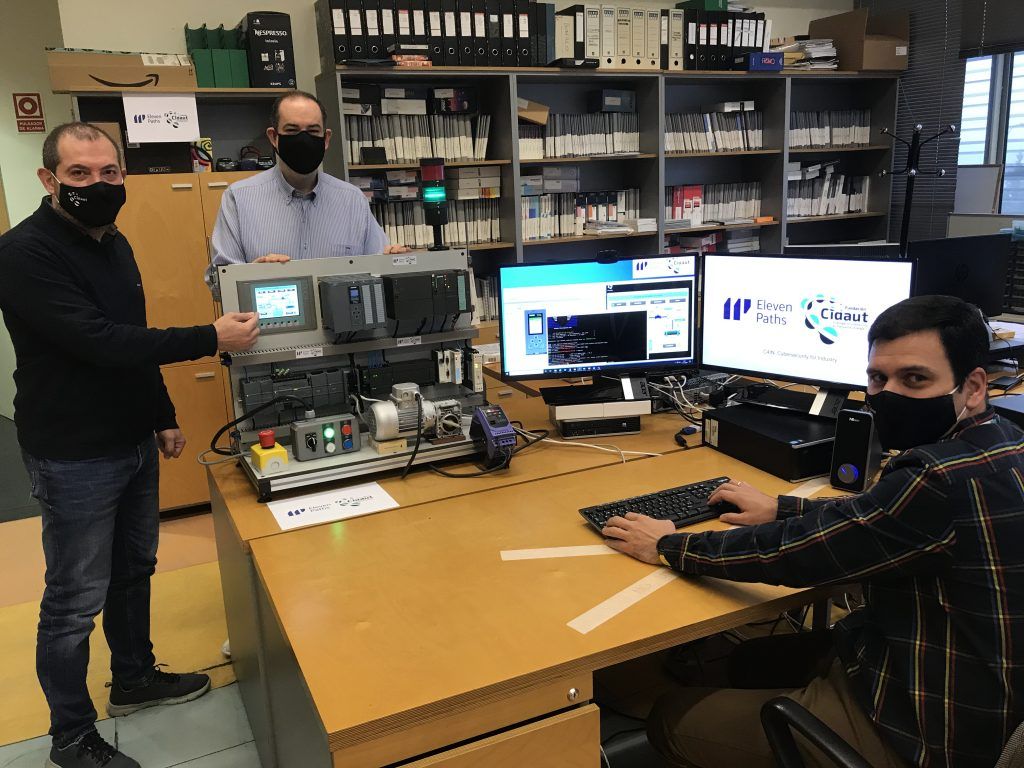Cidaut Foundation and Telefonica subsidiary ElevenPaths sign an agreement to boost efforts around industrial cybersecurity.
In a statement, Cidaut´s ITC-industry 4.0 unit and Telefonica Tech’s cybersecurity unit presented a new project, dubbed ARISTEO, on which they are working together. This collaboration is intended to catch cyber criminals operating in industrial environments aiming to generate intelligence about potential threats for small and medium-sized companies (SMEs) in Spain.
ARISTEO is a real industrial framework which allows the development of connected meta-honeynets; networks consisting of honeypots which run industrial control systems (ICSs) testbeds, thus allowing the collection of much more information on the attacks so attackers “fall into the trap” of thinking they are attacking a real company. These honeypots, classified as high-interaction honeypots, are based on real applications running in real systems. ARISTEO then entertains the attackers to obtain information about them, which is then used to alert customers, analyse security flaws and anticipate potential attacks.
“Examples of open innovation like this are the best way to develop cybersecurity projects, products and services locally, but whose scope is oriented to a global market and are possible because both companies carry innovation in our DNA”, said Jose Cascallana, director at the industrial cybersecurity centre C4IN, Telefonica. Cidaut foundation has provided the infrastructure to develop the pilot. The Industry 4.0 manager, Alvaro Garcia, stated that “the final product will be aimed at the proactive detection of threats and the generation of intelligence, differential elements in the world of cybersecurity, to help SMEs”.
In addition, the agreement between the two groups also establishes a collaboration framework for the development of more research and use cases in industrial cybersecurity, as well as to continue deepening in project ARISTEO, with the integration of the Cidaut demonstrator in the Telefonica demonstrators, of in such a way that both parties can develop, test and evaluate their own and third party tools. This entails holding joint demonstrations carried out in specialised forums and events, as well as allowing the exchange of information from systems exposed to attacks for the application of machine learning and analysis, based on the data obtained.
The companies consider the exchange of knowledge on the real state of industrial cybersecurity, with the SMEs vision of Cidaut, as a center of knowledge (R&D) with a multidisciplinary team that apply concurrent engineering techniques, including industrial processes, and being capable of arriving at the full industrialisation of the best solution, and of Telefonica, as a company that has a proposal for value oriented also to large companies and multinationals. This information will be shared with third parties since the objective is to create a value proposition oriented to the reality of the Spanish industry, satisfying its demand for cybersecurity solutions. Also, this global framework of collaboration between Cidaut and Telefonica is oriented towards future collaboration in both national and European projects.
Both institutions consider the agreement as one more step to achieve the recognition of Castilla y León as a specialized region in the field of cybersecurity.

